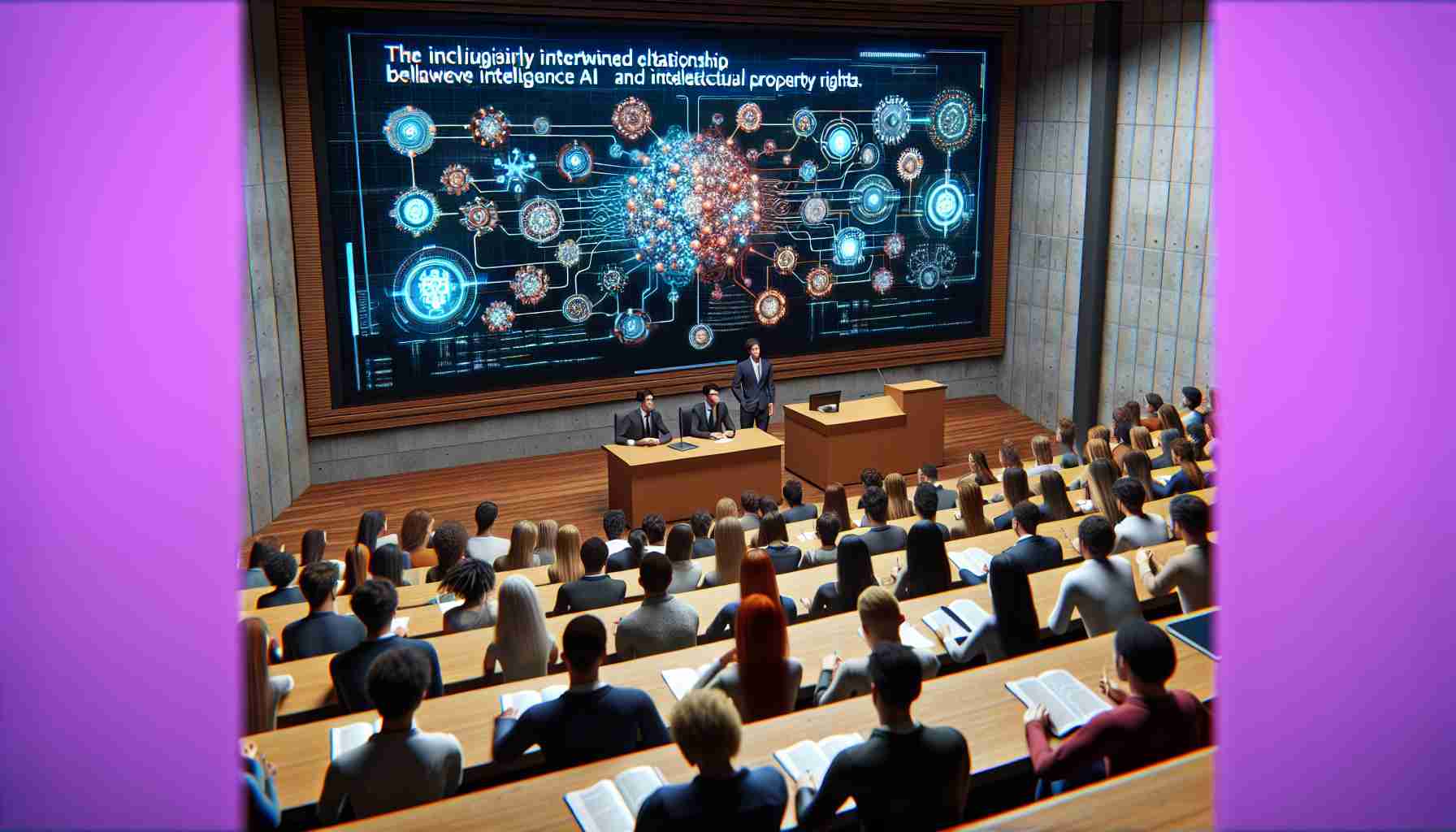The dynamic field of Artificial Intelligence (AI) and its impact on intellectual property (IP) laws were the focus of a recent lecture at Bohdan Khmelnytsky National University of Cherkasy. Invited by Natalia Popova, a professor of IT law, notable IP Academy professional and university alum Yulia Kravchenko enlightened students on this topic with an informative presentation.
The lecture adopted an interactive discussion format, providing students with valuable insights on how AI development intersects with the realm of intellectual property law. It touched upon crucial issues such as enforcing rights and setting limitations for AI use, as well as the consequences and influences AI might have on creators’ rights and the legal protection of intellectual property.
Yulia Kravchenko emphasized the importance of technological advancement, highlighting its significant role in daily life and socio-economic development. She drew attention to the fact that the ninth Sustainable Development Goal of the United Nations underscores the importance of industry, innovation, and infrastructure. Innovations, she pointed out, promote the growth of infrastructure, which, in turn, affects various aspects of a nation, from the economy to the environment and social structures.
Kravchenko’s address to future legal professionals recognized AI as a transformative force that has altered the landscape across numerous sectors, positioning itself as a pivotal innovation.
Significance of AI in the Context of Intellectual Property Rights
Artificial Intelligence (AI) is rapidly advancing and is becoming increasingly sophisticated, with applications across many industries. This technology has the potential to transform how intellectual property (IP) is created, managed, and enforced. AI can analyze large datasets to identify patterns and trends that may be relevant for IP strategy, and can even autonomously create works that could qualify for IP protection.
Key Questions and Challenges
One important question is whether AI-created works can be protected by IP laws, which traditionally require a human author or inventor. This has implications for copyright and patent law and raises questions about ownership and the attribution of rights. Furthermore, the interplay between AI and IP rights is challenging the existing legal frameworks which were designed for a world without autonomous digital creators.
Controversies
A significant controversy in the AI-IP intersection involves the patentability of AI-generated inventions. Can an AI system be listed as an inventor on a patent application? Current laws vary by jurisdiction, leading to inconsistent approaches and uncertainty in the protection offered to AI-generated creations. There is also debate regarding the ethical implications of AI in the creative process and whether AI should have any claim to the works it assists in creating or generates autonomously.
Advantages and Disadvantages
Among the advantages, AI facilitates efficient IP management, automates mundane tasks, and can enhance creative processes by providing novel insights or performing complex analyses. However, the disadvantages include potential unemployment in IP-related roles due to automation, as well as difficulties in determining the originality of AI-created works and the allocation of IP rights.
Related Links
For those interested in more information on this topic, here are related links to main domains:
– World Intellectual Property Organization (WIPO)
– Google AI
– IBM AI
The article about the university lecture underscores the relevance of this discussion within academic circles, preparing the upcoming generation of legal practitioners to navigate and shape the evolving landscape of AI and IP law. As AI continues to progress, the debate over its role and rights in intellectual property will undoubtedly intensify, demanding updated laws and novel approaches from legal professionals, policymakers, and innovators alike.
The source of the article is from the blog bitperfect.pe

